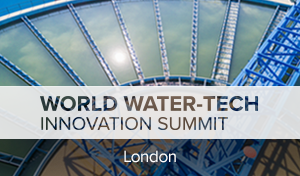Lightning Technique Used to Eliminate ‘Forever Chemicals’ Wins Award in Ofwat Innovation Prize
- A technology using a natural technique inspired by lightning that could be used as an alternative to chlorination, and eliminate so-called ‘forever chemicals’, is among the 10 winners of Ofwat’s Water Discovery Challenge announced today.
- Such products have potential to revolutionise water disinfection, removing the taste and smell of chlorine which is currently used in the process, as well as slashing the carbon footprint of the energy-intensive chemical.
- Ten teams, consisting of innovators from outside of the water industry, from sectors such as academia and technology, have been awarded a share of £4.5 million to demonstrate how bold solutions can help solve the biggest challenges facing the sector.
- Other winners include initiatives that use AI to analyse water quality incident reports and two projects to generate green electricity from wastewater, one of which uses fuel cell technology and another using pressurised hot water.
Technologies that use “lightning in a jar” and a chemical process with only water and oxygen as byproducts are being developed as potential alternatives to chlorine in disinfecting drinking water, have been awarded a share of £4.5 million by water economic regulator Ofwat in its first ever Water Discovery Challenge.
Across the UK, over 15 million litres of water are cleaned daily. The water is treated to some of the strictest standards in the world and passes 99.97% of tests.
Before being supplied to consumers, the untreated water is filtered for harmful bugs, pesticides and chemicals using a variety of techniques, all of which ultimately involve chlorination – using small amounts (less than one milligram per litre) of a chlorine-based chemical to ensure the water is clean and safe to drink.
Like many chemicals, however, the industrial production of chlorine uses a lot of energy and requires transporting to treatment sites across the country.
Anamad, one of the winners, uses “lightning in a jar” – chemically known as cold plasma– to safely disinfect water, with much lower operating costs than chlorine. Cold plasma is the electrical impulse – the jumping electrons – that spark when you ignite a gas hob. The spark is visible because it charges the air producing light and heat – this is plasma.
The technology – which looks like a strobe-lit coffee pot – requires no added chemicals or replacement parts and has low energy usage. The technique also helps to remove forever chemicals before water enters the wider environment.
Anamad is one of 10 teams being awarded up to £450,000 each as winners of the Water Discovery Challenge, to demonstrate how bold solutions can help solve the biggest challenges facing the water sector, today and in the future.
Helen Campbell, Senior Director for Sector Performance at Ofwat said: “This competition was about reaching new innovators from outside the sector with different approaches and new ideas, and that’s exactly what the winners announced today are doing. The products and ideas recognisedin this cross-sector challenge will equip water companies to better face challenges of the future – including achieving sustainability goals and meeting net zero targets – all while providing the highest-quality water for consumers.”
Dr Matthew Illsley, CEO at Anamad said: “Non-thermal plasma is a low-maintenance, affordable process designed to clean water by eliminating persistent and emerging pollutants from any source of water without generating a large carbon footprint. There is no waste created in the process and it ensures forever chemicals are removed before they enter the wider environment.”
Freeox, from scientists at Cardiff University and Origin Aqua, is another winner. This is another alternative to chlorination and uses a hydrogen-based formula to clean the water, in a process that generates only water and oxygen as waste products, therefore offering a cleaner, more cost and energy-efficient solution to filtration.
Andrew Cox, Chief Technology Officer and Founder of Origin Aqua, behind Freeox, said: “Unlike chlorine production, which is energy intensive, Freeox can be generated at point-of-use, reducing energy demand, while only creating water and oxygen byproducts- meaning there’s no chemical taste or smell. We’re excited to be upscaling and commercialising to test this game-changing technology which holds the potential to transform water treatment across the world.”
A third winner, ACQUIRE, from machine-learning company Mounce Hydrosmart, is using AI to speed the analysis of water quality incident reports – such as those made when water is heavily chlorinated. The software will also be able to identify interventions that have previously been effective in managing the problem reported – helping water companies keep drinking water safe, and ultimately accelerating how quickly customer incidents are resolved.
The competition is part of the Ofwat Innovation Fund, run by economic water regulator Ofwat, with Challenge Works, Arup and Isle Utilities and was a first for the water sector as it invited ideas from innovators across industries – unlike the Water Breakthrough Challenges.
Water Discovery Challenge aims to accelerate the development and adoption of promising new innovations for the water sector. Over the next six months, winners will also receive non-financial support to further the development of their solutions such as mentoring, along with a final showcase event that will allow them to pitch their projects to potential water company partners and/or investors.
Other winning projects announced today include initiatives to generate green electricity from wastewater. One project from the University of St Andrews will create green electricity at wastewater sites through a process that also destroys greenhouse gases. Another initiative, from ICMEA-UK, will use pressurised hot-water technology to generate green energy from contaminated wastewater.
To date, Ofwat’s £200 million Innovation Fund has awarded more than £110 million to 77 projects across England and Wales that are pioneering solutions to improve the water sector’s environmental impact – from the transition to net zero to tackling leaks and spills – and to transform services for consumers.
The Water Discovery Challenge was the first challenge from the Ofwat Innovation Fund open to non-sector entrants. Winners for the Water Breakthrough Challenge 4 (open to those in the water sector only) will be announced in May this year.
Full list of winners:
1. ACQUIRE (Artificial intelligence and Case based reasoning to improve water QUality Incident Response) – led by Mounce Hydrosmart Ltd and partners (University of Sheffield and RBMTS Ltd) – awarded £449,844. This project will analyse drinking water quality incident reports from water companies and other sources using the latest AI techniques to develop an interactive management tool and online portal benefiting the industry and its customers.
2. An innovative membrane technology for brackish and seawater desalination powered by low-grade waste heat – led by Waterwhelm and AtkinsRéalis – awarded £449,831. A new technology for desalination and water reclamation, designed to operate at low pressure, thereby reducing both initial capital investment and ongoing maintenance expenses. Powered by waste heat, this circular solution achieves the lowest-ever rate of electricity consumption and CO2 emissions, contributing to a more sustainable and cost-effective approach to water treatment.
3. Destruction of high impact greenhouse gases and generation of green electricity at wastewater treatment sites using fuel cell technology – led by the School of Chemistry at University of St. Andrews – awarded £449,640. Researchers from the School of Chemistry at the University of St. Andrews are developing fuel cell technology to capture and destroy greenhouse gases at wastewater treatment sites and to simultaneously generate useful green electricity.
4. Fully Structural Spray in Place Pipe (SIPP) lining providing burst protection for high-risk sewage rising mains – led by Resimac Ltd partnered with Schur-BPH – awarded £449,900. Resimac Ltd has developed a rapid and cost-effective solution for rehabilitating rising sewer pipelines, combining spray lining techniques with cured-in-place pipe (CIPP) technology to create a fully structural liner inside the existing pipe and, in doing so, eliminating the need for extensive excavation during the rehabilitation process.
5. Innovative coagulant free phosphorus removal technology – led by Cranfield University – awarded £450,000. Optimising phosphorus removal and recovery from wastewater, addressing environmental concerns, and enhancing resource efficiency in wastewater treatment processes.
6. Magnetic nanocomposites for DOC removal from drinking water – led by Lancaster University – awarded £449,518. A new sustainable technology for dissolved organic carbon (DOC) removal at water treatment works, enhancing water quality and ensuring environmental sustainability by efficiently addressing organic contaminants in the water treatment process.
7. Nonthermal 3D plasma – a novel Advanced Oxidation Process for water treatment – led by ANAMAD Ltd with and partners (University of Southampton, Kingston University, and IEG) – awarded £450,000. Developed a cold plasma device that removes pharmaceuticals, pesticides and forever chemicals from water.
8. Renewable Energy Via Aqueous-phase Reforming (REVAR) – led by ICMEA-UK and partners (Aston University and Costain Group PLC) – awarded £426,700. ICMEA-UK Ltd’s REvAR technology extracts energy from organic-rich wastewater (e.g. sewage sludge) in a sustainable and cost-efficient way. The technology is rapid, compact and creates an energy surplus and cleaner water.
9. Freeox – replacement of chlorination using H2O2 synthesis; for the removal of pathogens and residual disinfection of potable water – led by Cardiff University and Origin Aqua – awarded £450,000. Cardiff University together with Origin Aqua are replacing chlorination with hydrogen peroxide synthesis to provide a lower-energy and more efficient method of potable water disinfection.
10. senSiteUQ: Sensible Sensor Siting – led by digiLab Solutions Limited and Yorkshire Water – awarded £436,286. senSite UQ uses Uncertainty Quantification and AI optimisation techniques for sensor deployment and monitoring in the wastewater network, creating a cost-effective solution for water companies, suppliers and the supply chain.
References
15 million litres of water supplied to UK households each day (Water UK)
Treated water passes 99.97% of tests (Drinking Water Inspectorate)
Less than one milligram of chlorine per litre (Thames Water)’
About Ofwat’s Innovation Fund
Ofwat has established a £200 million Innovation Fund to grow the water sector’s capacity to innovate, enabling it to better meet the evolving needs of customers, society and the environment. It is encouraging new ways of working that go beyond business-as-usual innovation practices in the water industry, in particular, increasing and improving collaboration and building partnerships from within and outside the water sector.
The Innovation in Water Challenge, Water Breakthrough Challenge 1, Water Breakthrough Challenge 2, Water Breakthrough Challenge 3, Water Breakthrough Challenge 4, and Water Discovery Challenge were delivered by challenge prize experts Challenge Works in partnership with Arup and Isle Utilities. Following the first three of these (the pilot competitions), Ofwat received 40 submissions in response to its consultation about the future direction of the Fund. In July 2022 Ofwat set out its headline decisions on the approach we will take for the Innovation Fund for 2022-
Alongside opening Water Breakthrough Challenge 3, Ofwat has published ‘Innovation fund – approach for 2022-25 companion decision document’, which sets out further information on the headline decisions.Ofwat consulted on its proposal to extend the Innovation Fund beyond 2025 in ‘Creating tomorrow, together: consulting on our methodology for PR24’ and will now consider extending the Fund. Details will be decided later in 2023.
The Innovation Fund forms part of Ofwat’s approach to innovation in the water sector. Ofwat with the Environment Agency and Drinking Water Inspectorate also runs StreamLine, a joint service for innovators and businesses to get informal regulatory advice.
About Challenge Works
Challenge Works is a global leader in the design and delivery of high-impact challenge prizes that incentivise cutting-edge innovation for social good. In the last 10 years, we have run more than 80 prizes, distributed £84 million in funding and engaged with 12,000 innovators.
Challenge prizes champion open innovation through competition. We specify a problem that needs solving, but not what the solution should be. We offer large cash incentives to encourage diverse innovators to apply their ingenuity to solving the problem. The most promising solutions are rewarded with seed funding and expert capacity building support, so that they can prove their impact and effectiveness. The first or best innovation to solve the problem wins. This approach levels the playing field for unknown and previously untested innovators so that the best ideas, no matter their origin, are brought to bear on the most difficult of global challenges. Visit us at challengeworks.org

 CLOSE
CLOSE






